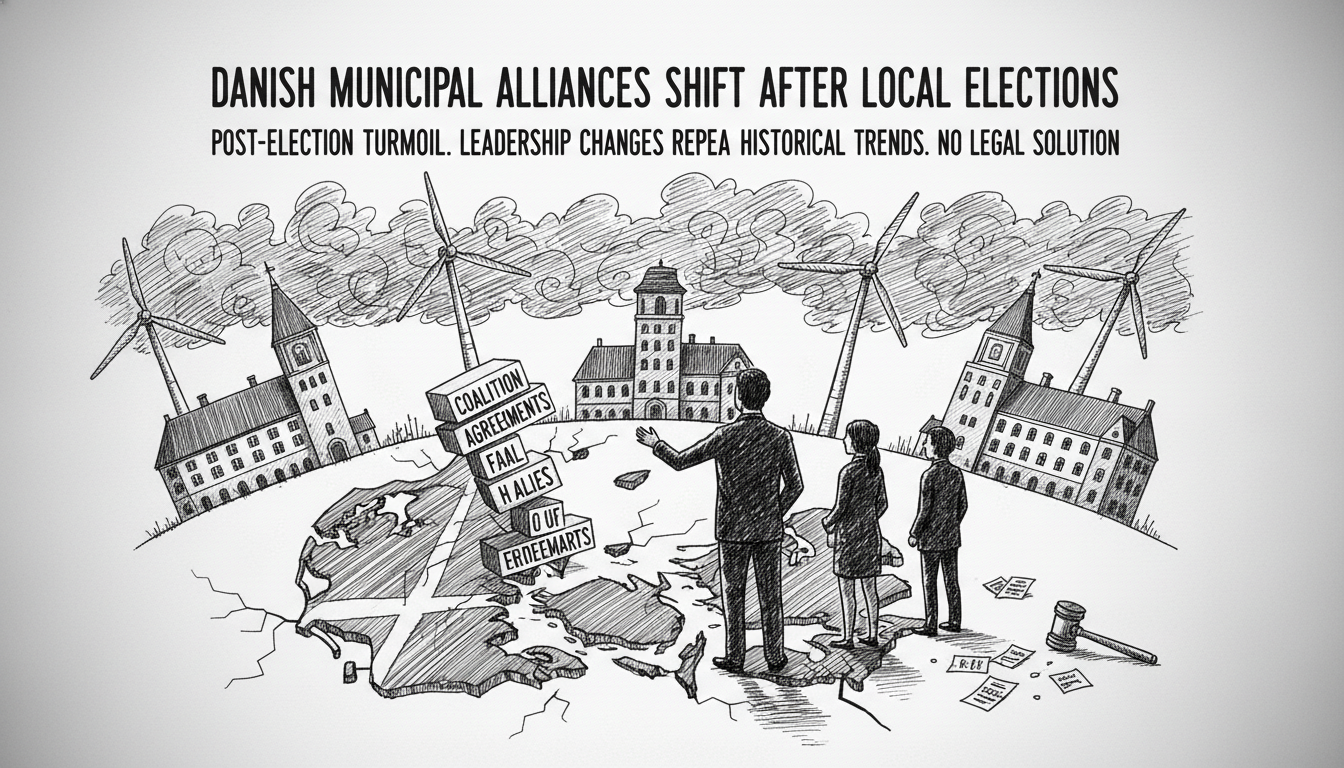Danish municipalities face political instability as coalition agreements collapse days after local elections. Multiple towns experience leadership changes despite election results being finalized. This pattern repeats historical trends observed in previous municipal cycles.
Political scientist Roger Buch from the Danish School of Media and Journalism confirms the phenomenon. He states that dramatic political shifts occur in approximately 10-20 of Denmark's 98 municipalities after each local election. The current system allows this volatility by design.
University of Copenhagen election researcher Kasper Møller Hansen recently proposed shortening negotiation periods. He believes this would prevent parties from abandoning pre-election agreements. Similar suggestions emerged after the 2009 municipal elections but were ultimately rejected.
A comprehensive 2012 study by the Interior and Economy Ministry and Local Government Denmark examined this exact issue. The investigation concluded that restricting municipal politicians' freedom would violate fundamental democratic principles. The report found the current system functions well in most municipalities.
Buch emphasizes that rule changes cannot solve the core issue. Shortening negotiation windows doesn't prevent politicians from changing parties or breaking agreements. The fundamental problem involves political integrity rather than procedural timelines.
The 2012 study recommended municipalities develop codes of conduct for coalition formation. Few municipalities actually implemented such guidelines. This suggests local political culture drives outcomes more than formal rules.
International observers should understand Denmark's municipal governance structure. Local governments manage substantial budgets and services including schools, elderly care, and infrastructure. Political instability at this level directly affects public service delivery and local economic development.
Copenhagen business districts and Øresund region companies monitor these developments closely. Stable local governance supports predictable business environments and infrastructure planning. The current political fluctuations create uncertainty for commercial operations across multiple regions.
This situation reflects broader European trends where local political fragmentation complicates governance. Denmark's experience demonstrates that procedural fixes cannot resolve deeper political realities. The system prioritizes democratic flexibility over administrative predictability.
The ongoing negotiations will conclude between December 1-15 when municipal councils hold constituent meetings. Until then, additional political realignments remain possible across Denmark's local government landscape.

